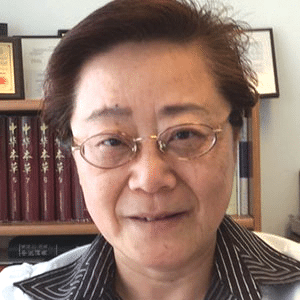
More Mental Health Articles
How To Treat Allergy & Asthma
Allergic rhinitis (commonly called hay fever) and asthma are conditions caused by immune system dysfunction. The common symptoms are sneezing, stuffy or running nose, eyes, nose and throat itch. Other symptoms may include difficulty breathing, poor appetite, snoring during sleep and coughing (with or without phlegm).
These symptoms may occur seasonally or all year. Some patients may suffer from year-long allergies; while others may progress to a more severe condition known as bronchial asthma.
Bronchial asthma is an episodic allergic pulmonary disease. The attack occurs mostly by inhalation of or contact with allergens, such as pollens, dusts, insects (such as mites), germs, etc. During the attack, patients have severe dyspnea (difficulty breathing) which is due to spasms of bronchial smooth muscles, swelling of the bronchial mucosa, and hypersecretion (over secretion) of mucus, leading to bronchial obstruction.
When the attack cannot be easily relieved and last for a longer time, it is called status asthmaticus. This disease, in traditional Chinese medicine (TCM), is attributable to the categories of xiao (Bronchial wheezing) and chuan (dypnea).
Upon laboratory examination, the eosinophilic leukocyte count may increase markedly during both the allergy and asthma attacks up to a 5-15% or more in differential count. Sputum examination may reveal more eosinopilic leukocytes and rhomboid crystals.
Serum concentration of LgE may be increased. A skin test for specific allergens is helpful to discover the allergic agent. However, the allergy test itself may provoke an asthma or allergy attack. Therefore, caution must be used when performing these tests.
There are two important aspects of treatment 1. Treat and relieve the symptoms and 2. Treating the root cause that is affecting the immune system to prevent or minimize future attacks.
Treating Symptoms
The immunologic processes involved in the airway inflammation of asthma is characterized by the proliferation and activation of helper T lymphocytes (CD4+) of the subtype TH2. The TH2 lymphocytes mediate allergic inflammation in atopic asthmatics by a cytokine profile that involves eosinophils that are frequently present in the airways of asthmatics and membranes of the allergic. These cells produce mediators that can exert damaging effects on the airways and membranes. Treatment of this phase focuses on preventing infection and inflammation, reducing spasms of smooth muscles, and protecting mast cells to reduce the release of serotonin.
Treating Primary Causes
Restoring the disturbed immune system, known as remodeling, is very important in preventing and minimizing asthma and allergy attacks. Pathologically, airway remodeling appears to produce several benefits including reducing smooth muscle damage, mucus gland production, and inflammation, while also stimulating collagen production and improving elasticity.
T cells play a very important role in asthma and allergies. Chinese medicine may help boost T cells (immune cells), which produce antibodies to combat antigens. In Chinese medicine we treat symptoms when emergent, but focus heavily on treating primary causes to prevent chronicity.
Other Articles You May Find of Interest...
- Embracing Healing: Navigating the Emotional and Physical Journey of Mastectomy Recovery
- Understanding the Role of Support Groups in Personal Development
- Ways To Check On a ‘Mama’ In Your Life
- How to get rid of stress
- The Impact Of Mental Illness
- Healthy Mind In a Healthy Body
- 10 Summer Bucket List Ideas For 2024

















